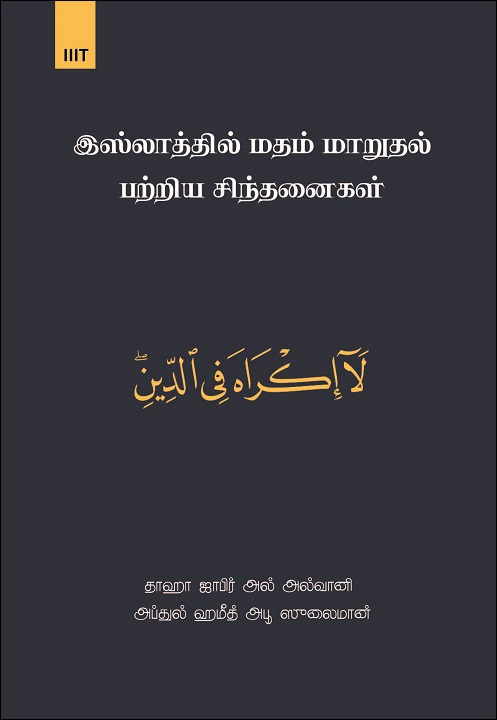
In this new and important analysis of apostasy (al-Riddah), the author examines fundamental teachings of the Qur’an, the Sunnah of the Prophet, as well as historical as opposed to scriptural postulates, to uncover the origins of the debate and refute misconception. Mainstream media and critics of Islam delight in pointing to the death penalty as evidence of Islam’s draconian tenets, moral flaws and flagrant disregard for human rights. This demonstrates a complete misunderstanding of the correct Islamic position, what apostasy signifies in Islam, ignorance of Islamic principles of justice, as well as failure to comprehend the manipulation of religion for political purposes. AbdulHamid AbuSulayman is President of the International Institute of Islamic Thought (IIIT) USA; President of the Child Development Foundation, USA; and former Rector of the International Islamic University, Malaysia. He is also the author of numerous works including: The Islamic Theory of International Relations: New Directions for Islamic Methodology and Thought (1987); Crisis in the Muslim Mind (1987); Marital Discord: Recapturing the Full Islamic Spirit of Human Dignity (2003); Revitalizing Higher Education in the Muslim World (2007) as well as several books and papers in Arabic. AbuSulayman has also delivered numerous papers and lectures and has been instrumental in organizing many international symposia, conferences and seminars. (2007). What is the legally prescribed penalty, if any, for apostasy (al-riddah), and how does this relate to the demand for religious tolerance as stipulated in verse 2:256 of the Qur’an “There shall be no compulsion in matters of faith”? It is an established fact that the Prophet never, in his entire life, put an apostate to death. Yet, the issue remains one of the most controversial to have afflicted the Muslim world down the centuries. It is also the source of much damaging media coverage today as Islamic jurisprudence stands accused of a flagrant disregard for human rights and freedom of expression. The subject of this book is a highly sensitive and important one. The author rightly concentrates on evidence, to examine the historical origins of the debate in rigorous detail, as well as the many moral and contextual issues surrounding it. Disputing arguments put forward by proponents of the death penalty he contends that both the Qur’an and the Sunnah promote freedom of belief including the act of exiting the Faith and do not support capital punishment for the sin of al-riddah. Note that attention is on the word sin, for there is qualification: as long as one’s apostasy has not been accompanied by anything else that would be deemed a criminal act, particularly in terms of national security, then according to the author, it remains a matter strictly between God and the individual. Of interest is the fact that the Qur’an significantly refers to individuals repeatedly returning to unbelief after having believed but does not mention that they should be killed or punished. This work has been written at a time of great complexity and vulnerability when a true understanding of the higher intents and values of the Qur’an and the Sunnah, maqasid al-shariah, is sorely needed. The author employs a strong evidence-based approach examining in detail the Qur’an and authentic Hadith, taking into consideration traditional approaches to the study of the Islamic textual sciences and other fields of knowledge, as well as analyzing scholastic interpretation. Taking the life of a person without just cause is according to the Qur’an equivalent to the killing of the whole of mankind. It is vital therefore, that in the interests of compassion and justice, as well as freedom of belief, this subject is clearly addressed once and for all. Dr. Taha Jabir Al-Alwani is a graduate of Al-Azhar University and an internationally known scholar and expert in the fields of Islamic legal theory, jurisprudence (fiqh), and usul al-fiqh. He is President of The Graduate School of Islamic and Social Sciences (GSISS), USA; President of The Fiqh Council of North America; Member of the OIC Islamic Fiqh Academy; and former President of The International Institute of Islamic Thought (IIIT), USA. He is also the author of numerous works including: “Source Methodology in Islamic Jurisprudence”, “Towards a Fiqh for Minorities”; “The Ethics of Disagreement in Islam”; “Ijtihad”; and “The Qur’an and the Sunnah: The Time-Space Factor”. (2005).
Paperback : ISBN: 978-955-8398-45-6 eBook : ISBN: 978-1-64205-303-6 Size/pages/year : (6x9) / 92 p. / 2018
